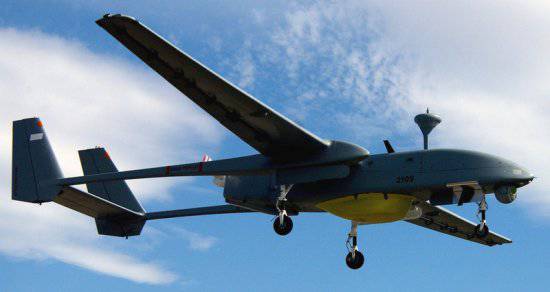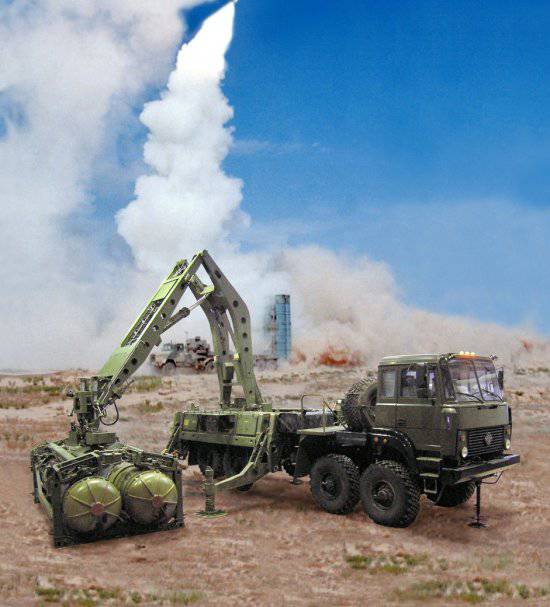Military-technical cooperation between Russia and Israel
Russia and Israel 6 September signed a long-term agreement on military-technical cooperation, which, according to the Minister of Defense of Russia, gives "new impetus to bilateral relations."
The agreement was signed in Moscow during the visit of colleague Serdyukov, the Minister of Defense of Israel (and the former Prime Minister) Ehud Barak. The details of the agreement were not disclosed, with a few exceptions.
So, it is known that the purchase by Russia of 36 UAVs in the amount of about 100 million dollars, which will be a continuation of the previous contracts, was discussed. The agreement became a framework document defining the main areas of further cooperation and, as a representative of the Russian Ministry of Defense expressed it, its cornerstone.
It is obvious that the signed document assumes the conclusion of additional agreements in the future. Ehud Barak mentioned the issue of combating terrorism, including the use of UAVs.
In addition, during his visit to Moscow, Ehud Barak met with Russian Prime Minister Vladimir Putin and expressed Israel’s concern about the planned supply of anti-ship missile systems to Syria and the ongoing attempts by Iran to acquire C-300 air defense systems.
Recall that Russia agreed to put Syria’s Bastion coastal anti-ship missile system, equipped with the Yakhont anti-ship missiles, developing Mach 2 speed, and capable of creating a serious threat to the Israeli Navy ships if Hezbollah fell into the hands.
Meanwhile, Israeli correspondent Jane's, citing representatives of the Israeli defense ministry, said that even a possible sale of the 36 UAV still needs to be checked by the Israeli Defense Ministry, and then be approved by the security committee.
“We will not risk our own safety by passing UAVs and combat equipment that could get into third countries,” an Israeli source said. In addition, for the conclusion of the transaction, Israel needs to obtain permission from the United States - the closest ally and main supplier weapons this country.
Jane's nevertheless believes that the further, more intensive development of military-technical cooperation between Russia and Israel in the direction of creating an Israeli equipment production in Russia that is of interest to Moscow is possible and corresponds to the tendency of creating a joint venture with countries such as France and Italy to sell products on foreign markets .
In the light of the signing of the agreement, Jane's analyzes its background and potential barriers to further convergence.
How it was
In June 2009, it became known that Russia was going to acquire 12 UAVs in Israel in order to study technologies and produce their own in the future. drones. The $53 million contract included the purchase of I-View Mk 150 short-range tactical UAVs and Israel Aerospace Industries (IAI) Searcher II long-range multipurpose UAVs. It was the first contract of its kind between Russia and Israel. The Russian side then stated that "it will receive them (technologies) and put them into practice."
In April, 2010 announced the upcoming creation of IAI and Russian Technologies joint venture in the field of unmanned technology with a total cost of 300 million dollars. Russia then expressed interest in launching production of some of the most advanced IAI platforms, including Heron MALE and high altitude aircraft UAV with long duration flight Heron TP.
In June, 2010 negotiations reached an impasse. The reason was the Israeli side’s concerns about the transfer of sensitive technologies to Moscow in the process of co-production of UAVs on Russian territory. According to Jane's, the difficulties that have arisen during the talks speak a great deal about the main incentives for Russian-Israeli cooperation.
Israel's interests
Israel seeks rapprochement with Russia in order to keep it from expanding cooperation with Middle Eastern countries. Russia is the largest supplier of weapons to Iran (for which, according to Jane's, has been sanctioned by the United States), Israel is particularly concerned about the sale of C-300PMU-1 air defense systems to Tehran, which is still open. The agreement with Iran was signed in 2007 after two years of negotiations. Now the implementation of the contract is frozen, and Israel and the United States are actively working on Moscow to prevent the sale.
The C-300 complex is able to protect Iran’s nuclear facilities from possible air attacks. Jane's believes it is logical that Israel considers the supply of UAVs and the development of military-technical cooperation with Russia as a means to influence Moscow in this matter.
The penetration of Russia into the Middle East security market could also paradoxically encourage Israel to develop a dialogue on military-technical cooperation with Russia. In 2009, Israel agreed to sell Moscow outdated platforms, the creation of which used technologies that are unlikely to pose a serious threat to Israel’s interests when they enter third countries (Israel’s opponents in the Middle East), which is a factor that hinders Israeli enthusiasm for development of military-technical cooperation with Russia.
Nevertheless, Moscow is interested in the joint production of precisely strategic systems, such as Heron, which significantly complicates the situation.
For its part, Russia seeks to increase sales of its weapons products to countries such as the United Arab Emirates, Saudi Arabia and Syria (the above-mentioned Bastion anti-ship missiles). This commitment corresponds to two important strategies: compensating for reduced sales in key weapon markets (India and China) and strengthening ties with key players in the energy market.
Russian interest
Russia's weakness in unmanned technology manifested itself during a conflict with Georgia in August 2008.
By the beginning of hostilities, Georgia was armed with medium-high-altitude UAVs with a long flight time from the Israeli company Elbit Systems's Hermes 450, as well as Israeli-trained personnel and Israeli technical support.
A number of programs are aimed at solving the problem of providing Russian aircraft with modern UAVs, but it is not possible to plug such a technological hole in a short time.
Understanding this, Moscow decided in this area to go along the path of cooperation successfully implemented with Italy and France. A joint venture with these technologically developed countries was created in order to fill the technological deficit (from which Russia does not make a secret) that was formed in the 1990s, when R & D costs were minimized.
In the case of France, joint R & D programs were launched between Russian state-owned companies and French DCNS, Thales and Safran. By equipping its own production of aircraft with the latest French avionics, Russia was able to maintain its position on the international market (in 2009, Russia was concerned about the risk of “slipping to the level of an iron supplier”). For example, about half of Sukhoi fighters produced for export are equipped with Thales avionics.
Conducting such analogies, Jane's believes that the development of cooperation with Israel on UAVs in the same scenario is very likely.
First, Israel, unlike France, is in a state of conflict of varying intensity with all its neighbors, in the hands of which, according to Tel Aviv, sensitive technologies could get through Russia. Secondly, Russia needs a UAV, first of all, for its own aircraft.
Apparently, Israel will continue to seek significant concessions from Russia on the Arab and Iranian directions, before it transfers to really sensitive technologies. The former Israeli ambassador to Russia Anna Azari spoke unequivocally in an interview with the Kommersant newspaper: “Israel’s blue dream that no one in the Middle East should sell arms to anyone except us.”
Should Russia follow the path of satisfying the whims of Israel? You can after all organize a joint venture with the same France. In addition, there is no certainty about the exceptional quality of Israeli unmanned technology. But the ambitions of Tel Aviv, in contrast to the prospects offered to them, are much more obvious. And you can not call them modest.


Information